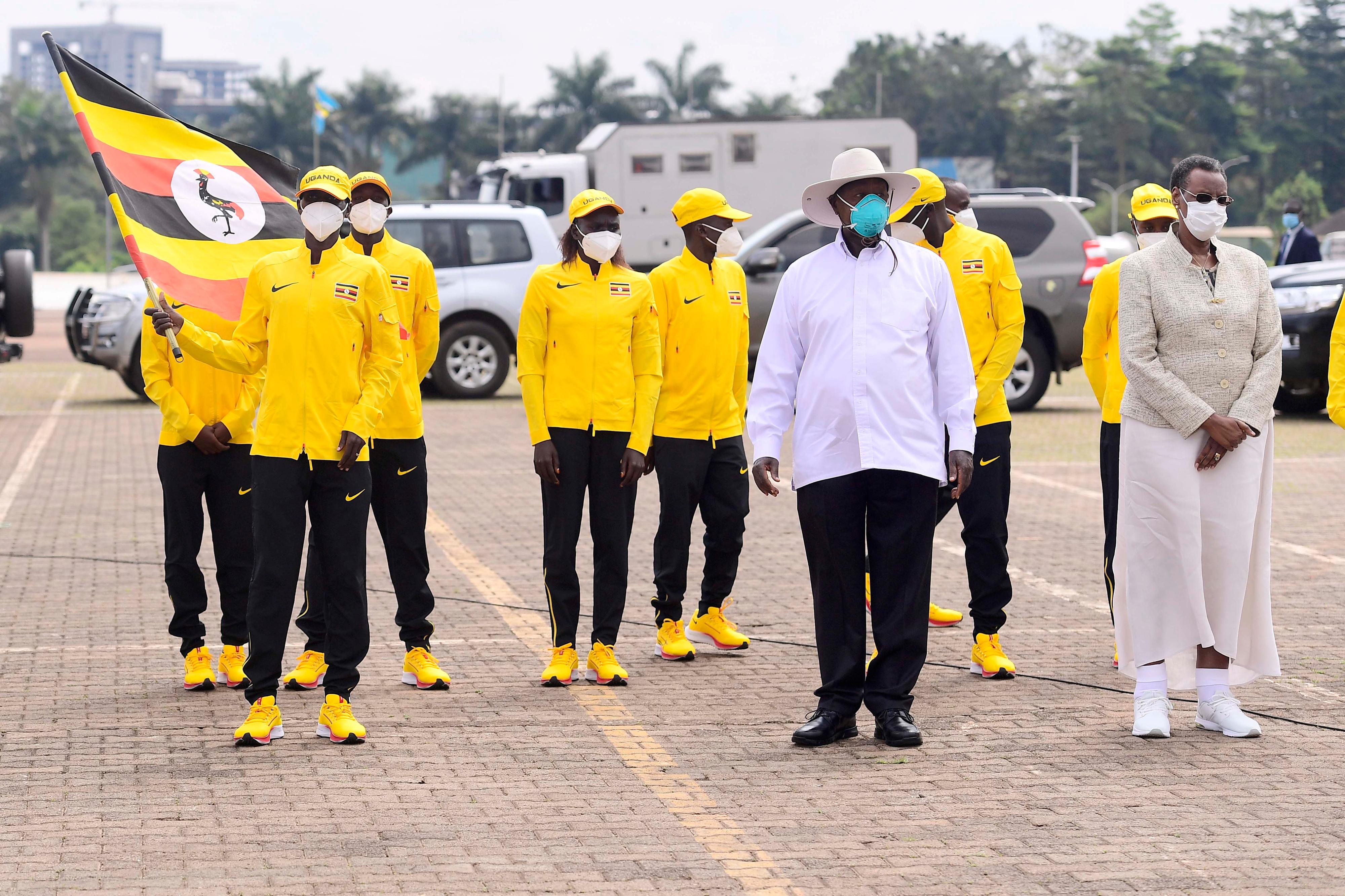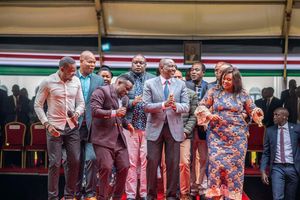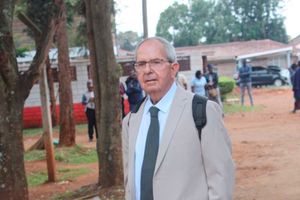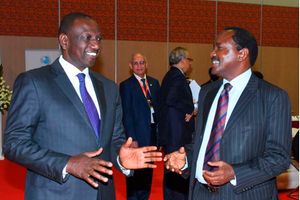Why Uganda is sending more officials than athletes to Tokyo

Ugandan President Museveni and First Lady Janet flag off the Uganda Olympics Team to Japan at Kololo Independence Grounds on July 9.
What you need to know:
- For the 2021 Olympics, Uganda is sending a 56-member contingent to Tokyo.
- Of these, 25 of them are athletes, the highest number the country has sent since the 1984 Games in Los Angeles.
- However, the rest of the travelling contingent, 31 to be precise, includes coaches, general officials, administrators and government officers.
Kampala.
One of the stories that always accompanies Uganda’s participation in the Olympics is the puzzling ratio of competing athletes versus officials.
For the 2021 Olympics, Uganda is sending a 56-member contingent to Tokyo. Of these, 25 are athletes, the highest number the country has sent since the 1984 Games in Los Angeles, and will be competing in four sport disciplines. Also, at 13, the number of female athletes beats that of male team members for the first time, also their biggest representation at the Games ever.
However, the rest of the travelling contingent, 31 to be precise, includes coaches, general officials, administrators and government officers.
Coaches are 12, National Olympic Committee (Noc) members, including president Don Rukare, are four, while two are International Technical Officials (ITOs). The ITOs are travelling as games officials at the invitation of their respective international federations and the IOC (for boxing, since Aiba was given a red flag).
Uganda's Tokyo Olympics delegation is led by State Minister for Sports Denis Hamson Obua. Other officials include IOC member William Blick, Beatrice Ayikoru (Chef De Mission) and National Council of Sports (NCS) general secretary Bernard Patrick Ogwel (general team manager).
Ms Jacqueline Nana Nakiddu travels as a team doctor, Ms Prossy Namusisi and Mr Tom Oomen as physiotherapists, while Ms Shadiah Nakamanya is the chaperone.
A media liaison officer, two team administrators and an athletes' representative complete the 31-man officials list.
However, Ugandans are now grumbling about the trend of officials either almost matching athletes in numbers, or sometimes exceeding them when they travel for international competitions.
The situation is worsened by allegations that some officials are also bringing relatives and close associates along to Tokyo, as was the case at the 2014 Glasgow Commonwealth Games, among others.
Officials vs determinants
Question is: How does Uganda decide which officials make the cut to travel for an event such as the Olympics?
According Uganda Olympic Committee President Donald Rukare, there is a method to the ratio.
“There is an IOC ratio multiplier that helps determine the athletes versus officials number, but there are also officials that will be at the Games regardless,” he offers.
“IOC members, for example, and NOC, plus high government dignitaries are always guests of the IOC, even if we qualified only one athlete. And as NOC, you are also entitled to an accompanying guest of your choice. You, the inviter, will pay the air ticket fare for your guest but your guest is not entitled to government allowances. They are only entitled to accomodation and accreditation.”
However, Mr Rukare confirms that the guest programme was scrapped as a measure to control numbers amid the Covid-19 pandemic.
He also admits that while IOC/NOC senior members like himself travel at the invitation of the Olympic body, they are also part of the Ugandan delegation as the national sports heads, and, therefore, earn allowances for both.
Determining the numbers
Back to athletes versus officials, the number of primary team officials (PTOs) at the Olympics is determined by the sum of the following calculations.
For every 1-4 duly entered male athletes in each discipline, maximum being 44, there will be one official. The same is true if the entered athletes are female, maximum being 46.
The number of team officials must correspond with the total number of individual athletes duly entered.
The quota system is, however, silent on specificity. It does not calrify whether the official should be technical or general.
If we are to go with technical, Uganda falls in the 25-29 category, and for these numbers, UOC is carrying 12 officials. This is outside of medical and general officials.
But even then, some gender requirements fall short. For example, athletics trainer Margaret Ijala is the only female coach despite 13 ladies competing in four disciplines. However, that can be explained in who a particular athlete has been working with in the run-up.
“Resources permitting, we would have had a female official for every discipline,” Mr Rukare says.
Then there is the matter of boxing, which has three boxers, including a lady, in Tokyo.
As per Uganda’s boxing president Moses Muhangi, submissions National Council of Sports (NCS) general secretary Ogwel and Mr Rukare agree with but contend it can only be reviewed for the future, the IOC ratio system is flawed.
While at two technical officials - Aiba 1 star coach Patrick Lihenda and Hassan Mohammed Mulandi - boxing is sorted within the quota, the technical needs of the game are not fulfilled.
“A boxer has three officials with him by the corner side during competition, that’s the standard,” Mr Muhangi says.
“Each of these officials,” he adds, “and not necessarily coaches, has a role to play.
“Official number one must be an Aiba certified coach with minimum 1 star. He is the one that is authorised to enter the ring during fight break.
“This is the main official, who analyses the fight and is able to advise the competing boxer on what to do to win the fight.”
The second official, a minimum 1 star, normally has a towel, water, and is responsible for picking and washing the mouth guard in case it drops in the ring during fight.
He also throws in the towel when necessary.
The third official, called a cut technician, manages the spit-can and stitches minor injuries on the boxer’s face during competition.
“This is the standard in boxing,” asserts Mr Muhangi, adding it is a sign of well preparedness of a boxer.
“And the performance of the boxer is majorly dependent on this team work between the competing boxer and coaches/officials/seconds in his or her corner!”
Mr Muhangi’s argument is that boxing should have had at least an extra official - technical or general - and from engagements on different forums, that official could have been a federation head.
But Mr Rukare says that while Mr Muhangi raises valid points, he (Muhangi) was not in the initial long list submitted almost a year before the Games.
“That is the list all federations first submit with athletes they think stand higher chances of qualifying and potential officials or coaches to go along with them. Muhangi was not on that list, and the two coaches that finally made it are from the lost that the boxing federation gave us.
Read more here





